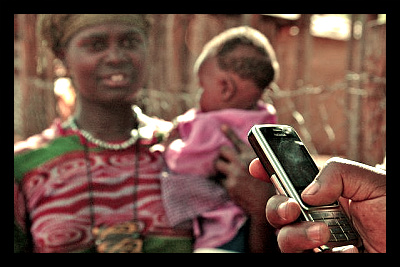mHero and Mobile Phones Help Stop Ebola

With more and more people in danger of contracting Ebola, officials believe that information is key to preventing the spread of the disease. Mobile phones and new technologies such as mHero (Health Worker Electronic Response and Outreach) are now playing a big role in the fight against Ebola.
Even in some of the poorest regions, many people have access to mobile phones. Because of the presence of mobile phone users, data scientists believe that this may be the easiest and most efficient way to distribute health information to people in West Africa. Officials are now using phones to collect activity data from citizens in disease-prone areas.
Mobile data allows organizations like the CDC to determine where citizens are making the most health service calls and therefore the best locations to assemble treatment centers. The data has also helped officials with traveler screening in order to prevent the spread of Ebola.
Additionally, user data has played a large role in helping to track population movements and foresee how the virus might spread. In the past, analysts only had access to on-the-ground surveys and police and hospital reports to determine the movement of diseases. However, mobile data has been a tremendous help in tracking Ebola and predicting its movement. Many believe that this is the most effective way to keep Ebola contained.
mHero is a new form of communication for Ministry of Health personnel that uses mobile phones to send important information to healthcare workers. The system works by releasing text message reports on Ebola diagnosis, treatment and prevention in addition to caretaker safety information. mHero also allows those working on the frontline and in remote areas to stay in contact and receive important Ebola updates.
mHero provides instantaneous access to health workforce data such as mobile phone numbers. “Officials can use mHero to conduct real-time monitoring, complex multi-path surveys and detailed analyses,” says IntraHealth Technical Advisor, Amanda Puckett. mHero launched in Liberia last month and currently has over 8,000 Ministry of Health members connected through its system.
Healthcare workers are also beginning to use mobile phones for interactive voice response technology. Systems such as these allow for higher user content limits and also provide solutions for literacy and language barriers that many healthcare workers face in foreign nations.
Mobile phones and technology are extremely beneficial tools that have been helping citizens and healthcare workers in the fight against Ebola. Researchers hope that this technology combined with other current methods will help to prohibit the spread of the virus and to provide infected patients with necessary care.
– Meagan Douches
Sources: The Guardian, VITAL, BBC
